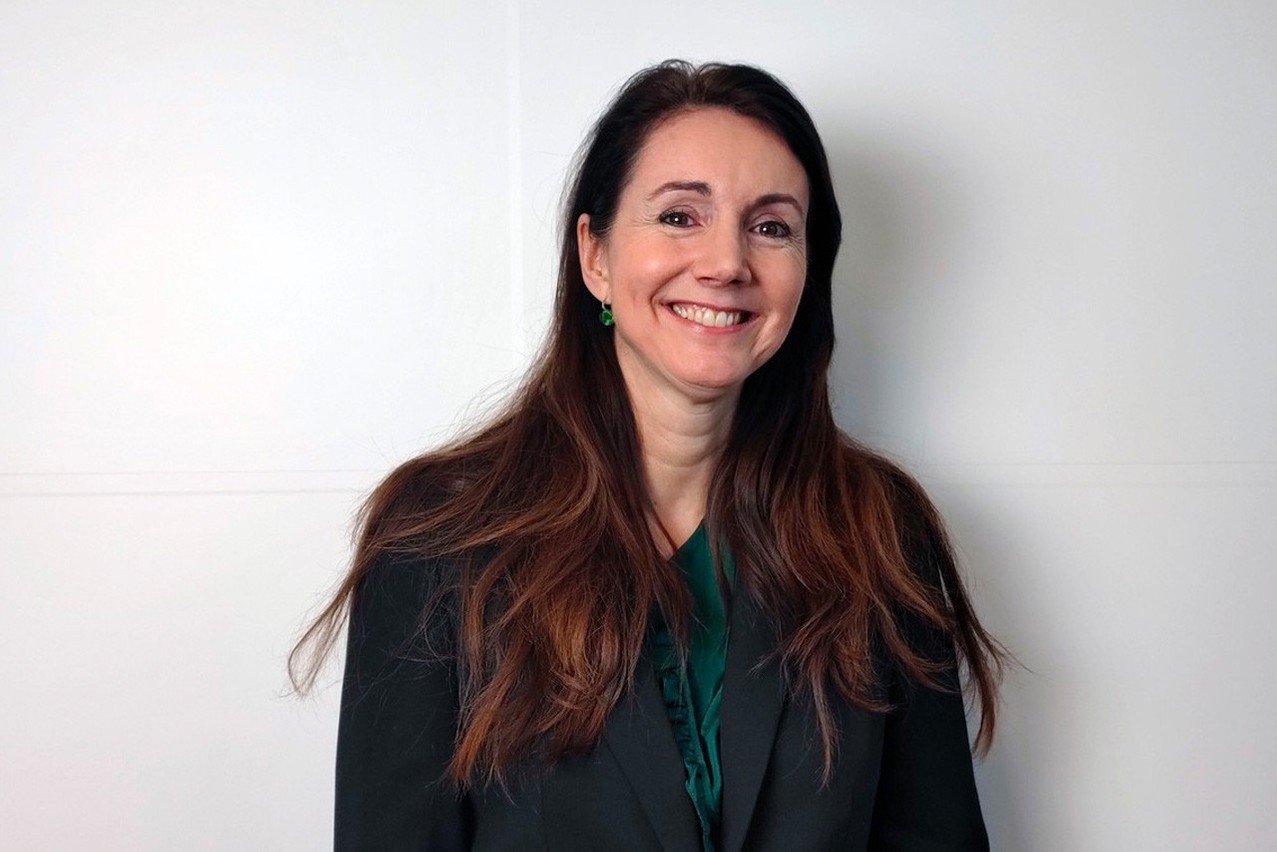Benoît Theunissen: For those who don't know you yet, how would you describe yourself?
Isabelle Delas: I am a committed and enthusiastic person. I have dedicated my career to development, funding and sustainability. I have been in this sector for almost 20 years.
How did your career path lead you to the position of CEO of Luxflag?
As a lawyer, I started by teaching at the university in Paris. I then moved to Rome to work at the International Development Law Organisation (UN observer status) where I was in charge of legal research for a number of countries, especially post-conflict countries. I developed various technical assistance and training projects for several donors, including for Afghanistan, Syria, South Sudan and Yemen. I worked for this organisation for nine years, in various roles, with diplomatic status. I also had the opportunity to live in Singapore for almost two years, again for the same organisation.
When I arrived in Luxembourg, I was in charge of AML [anti-money laundering] and compliance for a PSF [regulated service provider] IT company, as well as cloud computing and GDPR issues. I then worked for more than five years for Finance in Motion, an impact asset manager, where I set up the Luxembourg branch, the team and the procedures. I also set up the AIFM that manages Arbaro, a fund that invests in sustainable forests in Latin America and sub-Saharan Africa. I also had the opportunity to participate in ministerial working groups with the public and private sectors more than five years ago on the subject of sustainable finance, which enabled me to get to know most of the players in the Luxembourg ecosystem.
How did the first ten days after you took office go?
I took the time to get to know the team, which is made up of 13 people and 10 nationalities, with very different backgrounds and expertise. This linguistic richness is quite unique for such a small organisation. The whole team is highly motivated. I would like to pay tribute to the team’s courage in keeping Luxflag afloat following the tragic death of the former CEO Sachin Vankalas, . , the chair of Luxflag, has done a lot ad interim and is very keen to see the organisation grow.
How do you see your mission, while continuing the legacy of Vankalas?
Discussions have just started with the board regarding the future strategy of Luxflag, following my arrival. For my part, my vision is obviously to continue to develop Luxflag. This includes, for example, monitoring trends and the needs of the sector for potential new labels. Clearly, Luxflag has a role to play, especially from the point of view of the diversity of the labels we offer, which is quite unique. At this level, Luxflag is an independent structure that is more internationally oriented, knowing that Luxembourg is ideally positioned for this. Especially in the post-covid period, there is a demand to go to new European markets and not only.
It is often said that ESG is the ‘new AML’. You have worked in compliance, do you see parallels between the two areas?
There are parallels in the way it works with the Sustainable Finance Disclosure Regulation. It is different from AML, but the fact that we are able to make it something that becomes recurrent, semi-automated and gradually requiring almost all players to be in compliance with existing regulations, that is encouraging sustainable finance. In the near future, the regulator will carry out onsite visits, similar to what is happening with AML. This is still quite new, but it will gradually become structured. In a way, this should encourage the most sceptical to move in the direction of sustainable finance.
Apart from your arrival as CEO, what is the latest news from Luxflag?
Last December, the Sustainable Insurance Product Label was created. This is quite unique compared to the current offer for insurance products. There is also something new in terms of the expansion of the team. Recent recruitments have resulted in a very diverse and international team. Finally, from 17 to 19 October, we will be organising the fourth Luxembourg Sustainable Investment Week, three days of exchanges on the theme of sustainable finance, at Mudam. The objective of this event is for all our associate members, [there are] around 90, to present their concrete actions and ideas in the field of sustainable finance.
Luxembourg is recognised for its expertise in the field of sustainable finance. How would you describe this positioning?
Luxembourg is already extremely well positioned in Europe and has the capacity to involve both public and private sector actors. This is what happened with the various working groups that gave rise to the roadmap and the Luxembourg sustainable finance strategy, following which institutions such as the Luxembourg Sustainable Finance Initiative and the International Climate Finance Accelerator were created. We are working in synergy to accelerate the transition towards a common goal and to enable the Luxembourg financial centre to position itself as a leader in the sustainable finance sector. To achieve this, training and attracting talent is crucial given the significant needs in the near future.
How is Luxflag’s international visibility measured?
Our new website has given very good results. In terms of visibility, we see that a lot of visitors coming from abroad. Many of them are from European countries, but also from Asia and North America. In our regular press reviews, we also see that we are often mentioned in Spain, Italy and the United States.
Originally published in French by and translated for Delano
